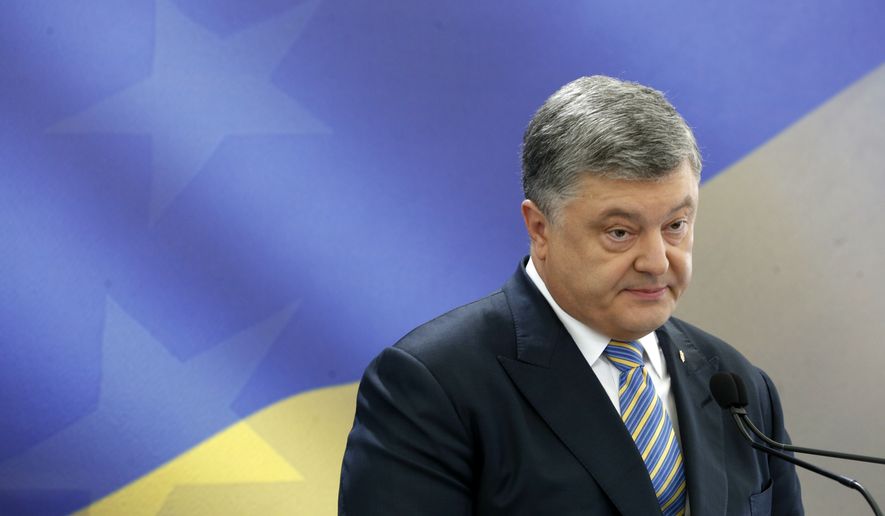The president of Ukraine banned four of the nation’s most popular websites Monday with a new round of sanctions targeting Russia over its 2014 annexation of Crimea and subsequent aggression.
President Petro Poroshenko issued a decree Monday evening broadening anti-Russian sanctions and expanding Kiev’s blacklist to 468 companies and 1,228 people, including Mail.ru, the Moscow-based firm in control of Ukraine’s two most popular social networks, VK and Odnoklassniki, as well as Yandex, a Russian-owned search engine, in addition to several major Russian television channels and banks.
“The challenges of hybrid war demand adequate responses,” Mr. Poroshenko said in a statement Monday. “Massive Russian cyber attacks across the world — particularly the interference in the French election campaign — show it is time to act differently and more decisively.”
“Russia used cyber warfare trying to influence the results of elections across Europe and in the U.S.,” Mr. Poroshenko added during a Monday night television address, IB Times reported. “We expect that they will try to do the same thing to Ukraine.”
The sanctions took effect immediately and quickly earned condemnation and cries of censorship from affected entities and open internet advocates as well as ridicule from Russian President Vladimir Putin’s administration in Moscow.
“We have always steered clear of politics,” said VK, which claims about 16 million social network users in Ukraine alone. “We believe that in its very essence, the internet has no borders.”
“Supposedly this is because Russia is making money from our users and we are at war. But, excuse me, these are sanctions against the citizens themselves,” opined Oksana Romaniouk, Reporters Without Borders’s Ukrainian representative.
Dmitry Peskov, Mr. Putin’s spokesperson, called the sanctions “short-sighted” and warned Russia had not “forgotten about the principle of reciprocity.” Russia’s Foreign Ministry, meanwhile, called the sanctions a “manifestation of politically motivated censorship,” not withstanding its own repressive internet restrictions.
Other targets of Ukraine’s latest sanctions include Russia’s leading cybersecurity firm, Kaspersky Labs, in addition to several banks and television stations, including Rossiya Segodnya, RBC, VGTRK and TNT, among others.
Moscow annexed Crimea from Kiev in 2014 after Ukraine’s pro-Russian president, Viktor Yanukovych, was overthrown from office and replaced by Mr. Poroshenko. Pro-Russian separatists purportedly backed by Moscow instigated a civil war in eastern Ukraine later that year, the likes of which has claimed at least 10,000 lives in the last three years.
• Andrew Blake can be reached at ablake@washingtontimes.com.




Please read our comment policy before commenting.